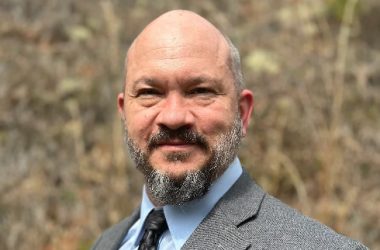CHARLESTON, W.Va. — After a six-year hiatus, legislators hit the road for August interim meetings, with sessions in Bridgeport and site tours throughout north central West Virginia.
Beginning in 1990, and going through 2008, legislators had held interim meetings outside of Charleston at least once and usually twice each year.
Over the years, legislators had gone as far north as Weirton, as far east as Shepherdstown, as far south as Logan, and as far west as Huntington for interim meetings. They’d also held interims at Pipestem and Canaan Valley state parks, and at Showshoe and Glade Springs resorts.
The Great Recession had put an end to the road tripping until now, when House Speaker Tim Miley, D-Harrison, brought the Legislature to his hometown of Bridgeport for the three-day session, Aug. 25-27.
With an agenda dominated by tours and site visits in Monongalia, Marion and Harrison counties, critics suggested the interims were designed primarily to provide photo opportunities for legislators heading into the November elections.
However, Miley told The AP he saw it as an opportunity to showcase the economically booming region of the state.
“Part of the benefit of coming to a successful part of the state is, perhaps, seeing what’s working that may be taken back to other parts of the state,” he said.
When not on field trips, several committees took up several matters of significance, including:
— An ongoing audit of questionable spending and “possible fraud or abuse” in the Department of Agriculture under former Commissioner Gus Douglass.
The newest findings included questionable spending of $661,790 of federal stimulus funds to install new refrigeration units at the struggling Inwood Farmers’ Market in Berkeley County in 2011.
Legislative auditors concluded the former administration had rushed to use up the stimulus funds “without adequate consideration of cost-to-benefits analysis or alternate uses of government funds.”
Under current Agriculture Commission Walt Helmick, the department shut down the farmers’ market, which was suffering operating losses in excess of $100,000 a year, this April. The department has since leased the building to a private business.
The audit also uncovered additional evidence of improper travel expenses, including a $282 expense for two nights’ lodging at a Charleston hotel for Douglass, in conjunction with an $8,000 retirement party staged for him at taxpayer expense in November 2013.
It also found instances where a deputy commissioner received duplicate reimbursements for travel expenses, amounting to $716 in overpayments, and where an assistant commissioner had exaggerated mileage for travel, collecting $3,347 more in mileage reimbursements than he should have received over 18 months.
— Another legislative audit found that the state licensing board for Registered Nurses seems to be more interested in protecting RNs than in protecting the public.
It found that the board had not properly investigated three nurses accused of falsifying medical records while working at a pain clinic, and had allowed four nurses to return to work despite repeatedly failing drug tests while enrolled in substance abuse treatment programs.
The audit also found that 16 percent of complaints against nurses took 18 months or more for the board to resolve, which auditors concluded is too slow, given the complaints can involve life-threatening issues such as inadequate patient care.
— Corrections Commissioner Jim Rubenstein told legislators he is pleasantly surprised by a 3.5 percent drop in the state’s prison population in just the first year of the state’s Justice Reinvestment Act.
The sweeping legislation, which went into effect in July 2013, includes a number of initiatives intended to reduce the inmate population, including accelerating eligibility for parole, expanding community corrections options, and providing alternatives to parole revocation for parolees who commit technical, but not criminal, violations.
Rubenstein noted that experts with the Council of State Governments, who helped draft the reforms, had predicted it would take several years for the state’s inmate population to level off and begin declining.
“We were pleasantly surprised right off the bat at such a population decrease,” he told the Joint Standing Committee on Judiciary.
Rubenstein noted that at the time the legislation was passed, more than 1,700 Corrections inmates were housed in Regional Jails because of prison overcrowding. Currently, that number is below 900, he said.
Meanwhile, legislators will have a short turnaround time, returning to Charleston for September interim meetings, Sept. 8-10.





